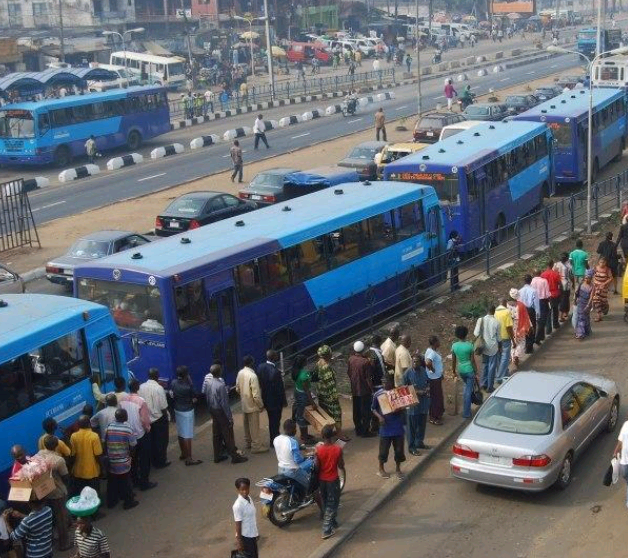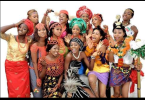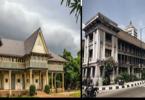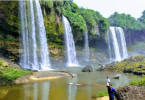Several modes of transportation are available for use to your advantage while navigating Nigeria. Linking many areas of the country together are roads in several stages of maintenance. And thankfully, the recent and current administrations in government have made road maintenance a priority. But generally there are more options available for people in cities and suburbs in rural locations.
In order to guide you in choosing convenient modes of transportation while navigating Nigeria, let us examine the existing ones. Thus you can decide which ones you need, depending on the prevailing circumstances. Find out which ones are the safe ones, the affordable, the fast, and those that can handle rough roads and traffic gridlock.
Existing Modes of Transportation in Nigeria: A Quick Run-Through
The following modes of transportation are available across Nigeria: air, ferry, microbus, minibus, bus, tricycle, motorbike, and cars (personal and hired).
Air Transportation
If you are traveling between Nigeria and other countries, or you are flying interstate, the best option still remains air transportation. Most plane commuters flying interstate or in and out of the country pass through two major international airports. Namely, Murtala Mohammed International airport (Lagos), and the Nnamdi Azikiwe International airport (Abuja). Air transportation is arguably the safest and fastest means of transportation in Nigeria.
Altogether, there are 32 functional airports in Nigeria. Out of that number, 26 are owned by the federal government; and administered by the Federal Airports Authority of Nigeria (FAAN). There is just one state-owned airport in Akwa Ibom state.
Before choosing to travel via any local airline, it is best to check their safety and security records. Getting reviews from older commuters, and online fact checking, are strongly recommended. In recent years and much to everyone’s relief, there have been reduced incidences of air crashes in the country. Safety standards of all local airlines are being checked by the Nigerian Civil Aviation Authority (NCAA). But curiously enough, no local airline in Nigeria is a member of the International Air Transport Association (IATA).
But we can safely recommend the following three local airlines as top choices for local and international air travel. We have Arik, Aerocontractors, and Air Nigeria (the former Virgin Nigeria). These three airlines have the most modern fleet of airplanes and top security mechanisms in place. But you can expect that the best facilities will definitely not be cheap: their tickets are priced at premium rates.
Cars: Both Private and Hired
Cars are by far the most widely available mode of transportation in Nigeria. Economic crunch or not, thousands of Nigerians still manage to afford buying at least a fairly-used ‘tokunbo’ car (if not a new one). Which explains why the major roads in populous cities like Lagos constantly suffer traffic gridlocks at peak times of the day.
Private cab/taxi charter services have become very accessible in virtually all Nigerian cities for decades. They are available at anytime on busy roads, at major bus stops and car parks. And they are quite reasonably priced (though costlier than micro- or minibuses).
Additionally, there are now licensed companies that provide private cab charter services, which you can book ahead through their mobile apps. They are particularly common in Lagos – the likes of InDrive, Uber, and several others. They even have their agents at the terminals of the major international airports in the country. In fact, this mode of transportation is recommended for any foreigner or citizen concerned about safety and comfort.
Aside from this, there are informal cab/taxi drivers (controlled by transport associations) in all Nigerian cities. If you are buoyant enough, you may hire any of them from a few hours to even days at a stretch.
Minibuses and Microbuses
Minibuses popularly called ‘danfo’ are by far the cheapest and commonest mode of transportation around Nigeria. You might get lucky and enter a decent-looking one, and there are quite a number of them. But it is not guaranteed. They are everywhere all over Lagos, and in a good number of other major Nigerian cities. They also reach virtually every available destination within each state.
These buses are coordinated by the local road transport union at each driver’s official base(s), whose agents often influence or outrightly dictate the transport fares. The current traffic situation, the weather, fuel prices, and the distance covered, also influence transport fares. And so the transportation cost can be arbitrary. It is often not difficult to know the route plied by each minibus owner. It will be displayed on a placard positioned atop the bus, or even written on the vehicle body.
In the last half-decade or so, Microbuses (called ‘korope’ in Lagos) have joined the minibuses in droves. The major advantage of Microbuses is that they carry fewer passengers (obviously) and thus get filled up on time. Microbuses also manage to escape traffic gridlocks faster than the minibuses, because their drivers can manouver through narrower spaces on the road.
The frequent manouvering and subsequent constitution of blockage and nuisance caused by micro- and minibus drivers is a common practice, especially in Lagos. Passengers in such buses are often targeted by pick-pockets (unless they are extra vigilant). There are also cases of kidnappers who disguise as micro- and minibus operators. Two other common challenges of patronizing these micro- and minibuses are the prevalence of gospel preachers and drug peddlers who are serious noise risks.
Bus Transportation
Privately-owned bus transportation services have been existing for many decades across cities in Nigeria. They have been plying interstate routes conveniently; and there are several of them in virtually every city in Nigeria. They have evolved into air-conditioned vehicles with television and/or video players; and some of them have toilet facilities. These bus companies also offer alternative bus and/or car transportation for those who prefer them.
But about a decade ago thereabout, the Lagos State government introduced the Bus Rapid Transit (BRT) service for carrying passengers both within Lagos and interstate. These blue buses are comfy and well organized, with reasonable transport fares. They have several state-owned bus stations across Lagos; passengers are mandated to buy tickets, and to form queues. They also have special lanes carved out for them on the major roads and as such, are not often caught up in heavy traffic.
In recent times, the demand for them has far outstripped the available supply. It is hoped that other states of Nigeria will roll out a similar initiative in the near future.
Ferry Transport
Ferries are a viable transportation option that can connect cities and towns through the many waterways in Nigeria. But they are not well exploited in the country. The only applaudable public use of ferries is the one carried out in Lagos – between Victoria island and the mainland.
Tricycles/Rickshaws
Tricycles (popularly called ‘keke Marwa’) are a fairly common feature in many Nigerian cities and suburbs. They are used to navigate roads that would have otherwise been difficult for buses to navigate – especially narrow and rough roads. They can also manouver in-between and beside other bigger vehicles quite easily. However, this feature is both ab advantage and a risk.
Motorcycles
Motorcycles (otherwise nicknamed ‘okada’) are a highly popular means if transportation everywhere across Nigeria. You can call them motorbike taxis. Motorcycle riders are notoriously good at manouvering well in nooks and crannies, and in-between other vehicles. They can easily escape a traffic gridlock.
However, they pose security and accident risks. Some criminals use motorcycles to target and rob people during heavy traffic and in the wee hours. And they are often on the wrong wide of the law for traffic violations (along with tricycle riders).








